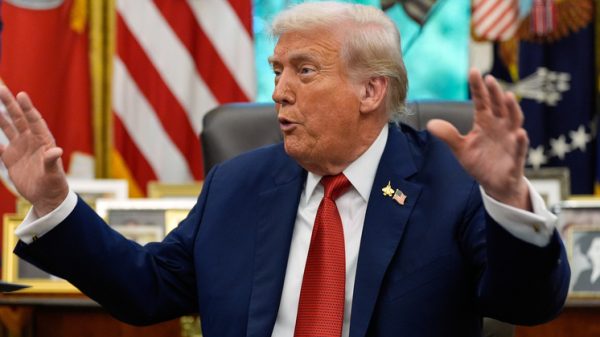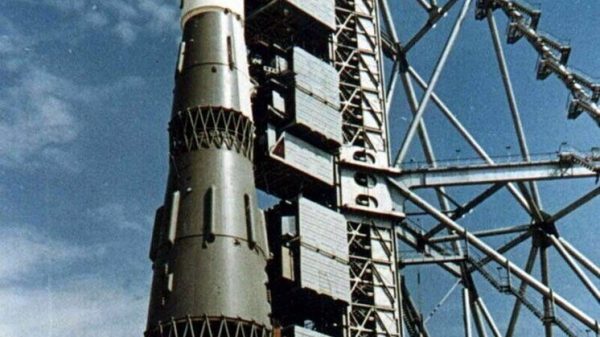 VAR has had no results, but removing it will cause even more problems. Photo: PA/Mike Egerton
VAR has had no results, but removing it will cause even more problems. Photo: PA/Mike Egerton
Wolverhampton Wanderers' lone Premier League uprising against VAR forces came without warning, and it remains to be seen whether it will attract the 13 other clubs needed to form a super-majority and force change.
There is little love among clubs for VAR, the introduction of technology into football law that was launched in the Premier League in 2019. Equally, most of them understand that simply abandoning it now would be absurd. Too much has been invested in this brave new world: too much time and resources spent on refining a system that — if removed overnight — would simply return them to where they were before.
The problem has never been the referee's error — throughout the history of football, referees have always made mistakes. Rather, the problem is that all-encompassing television coverage, with its ultra-slow-motion HD images replaying every controversial incident, means that all of these errors can be viewed by a global audience in seconds in great detail. Before VAR, the only person who was unaware of these events was the referee.
The same would be true in a post-VAR world. Games will still be reviewed on television, but by experts who are not allowed to correct errors.
There is a huge appetite among clubs to improve VAR after another season that has had its share of disasters, although everything is fine and there is nothing like a quorum of 13 traveling companions, Wolves would need to get rid of it.
These are discussions that Premier League clubs prefer to have privately, although in this case many were only informed after the story broke. There is now a general shift towards external dissent, as evidenced by the infamous Nottingham Forest half-time post on Channel X this season. While managerial ranting is generally tolerated, disagreements between owners and executives tend to remain behind closed doors.
The 20 clubs, naturally conservative, recognize that much of what they hold dearest are multibillion-dollar rights deals and smaller commercial considerations — damage is done when they are criticized from outside.
There will also be resentment among Wolves' colleagues at the possibility of being seen as opposing a measure that has received public support but is in fact seen as unworkable. There is no certainty that the Wolves' proposal will even reach a vote. Many issues on the agenda at Premier League meetings will never get very far if the opposition to them in the preliminary discussions is simply overwhelming.
There are already those who point out that this was something of a quick turnaround on Wolves' part. A month ago they voted unanimously to add new technology to the Premier League next season — the approval of semi-automatic offside.
There is no doubt that Wolves and their fans in particular have an antipathy towards VAR that is unparalleled in the league. When VAR intervened on Saturday to rule that Matheus Cunha's second-half goal against Crystal Palace was legal, Wolves fans broke out in their usual «F— V-A-R» chants. Confirming the old notion that all foreign policy is essentially domestic policy, Wolves' attack on VAR is sure to please fans.
What this will lead to is not entirely clear. Five years later, VAR has yet to provide the answer to all of football's recriminations as promised when it was introduced. It was presented in a very hopeful mood, and its most bitter opponents, such as former FIFA President Sepp Blatter before he changed his position, were considered obstructionists and backwards.
The imperfections of VAR were all too obvious on the scoresheet , which was constantly rewritten to cope with the many unforeseen consequences of such a huge change. The high bar of “clear and obvious” meant that VAR did not aim to correct every decision, but only those that reached a certain threshold of inaccuracy. No one has really thought about what VAR might look like during a match, or what the effect of delaying or interrupting goal celebrations might be.
However, the reasons for introducing VAR remain as relevant today as they come. were five years ago. The world experiences football differently today, with technological sophistication meaning they see the action at a level of detail that was previously impossible. Whether it's a subtle miss by a striker in the box or the obvious case of Andre Marriner dismissing the wrong Arsenal player at Stamford Bridge ten years ago, television will catch it all.
There is no way that the person tasked with running the game has less information about what is happening than the average spectator sitting on a bar stool thousands of miles away.
Wayne Rooney, one of the greatest men of the era. , responded to Wolves' proposal on Wednesday evening with support. As a Sky Sports pundit, he said he would prefer to scrap VAR, accept the amount of human error referees have and «understand that they will make mistakes.»
«It takes away games of all the fun» 😮
Wayne Rooney, Roy Keane and Andy Cole share their thoughts on the recent news of VAR being abolished next season ❌ pic.twitter.com/T24VxqZRF1
— Sky Sports Premier League (@SkySportsPL) May 15, 2024
The VAR experiment alone has shown that mistakes are never accepted, whether by the referee in a traditional on-field role or by the on-screen referee advising them. . Football clubs and football fans view the world through the lens of injustice, real or imagined, that they have faced. Most are not interested in admitting mistakes.
VAR was one of the ways football convinced itself it could eliminate human error, and now, having failed to do so, at least one the club just wants to eliminate VAR. But as many clubs seemed to be saying last night, this will only take them back to where they were five years ago. That is, with all the usual errors that can be seen in detail all over the world, and there is no way to correct them.























































Свежие комментарии